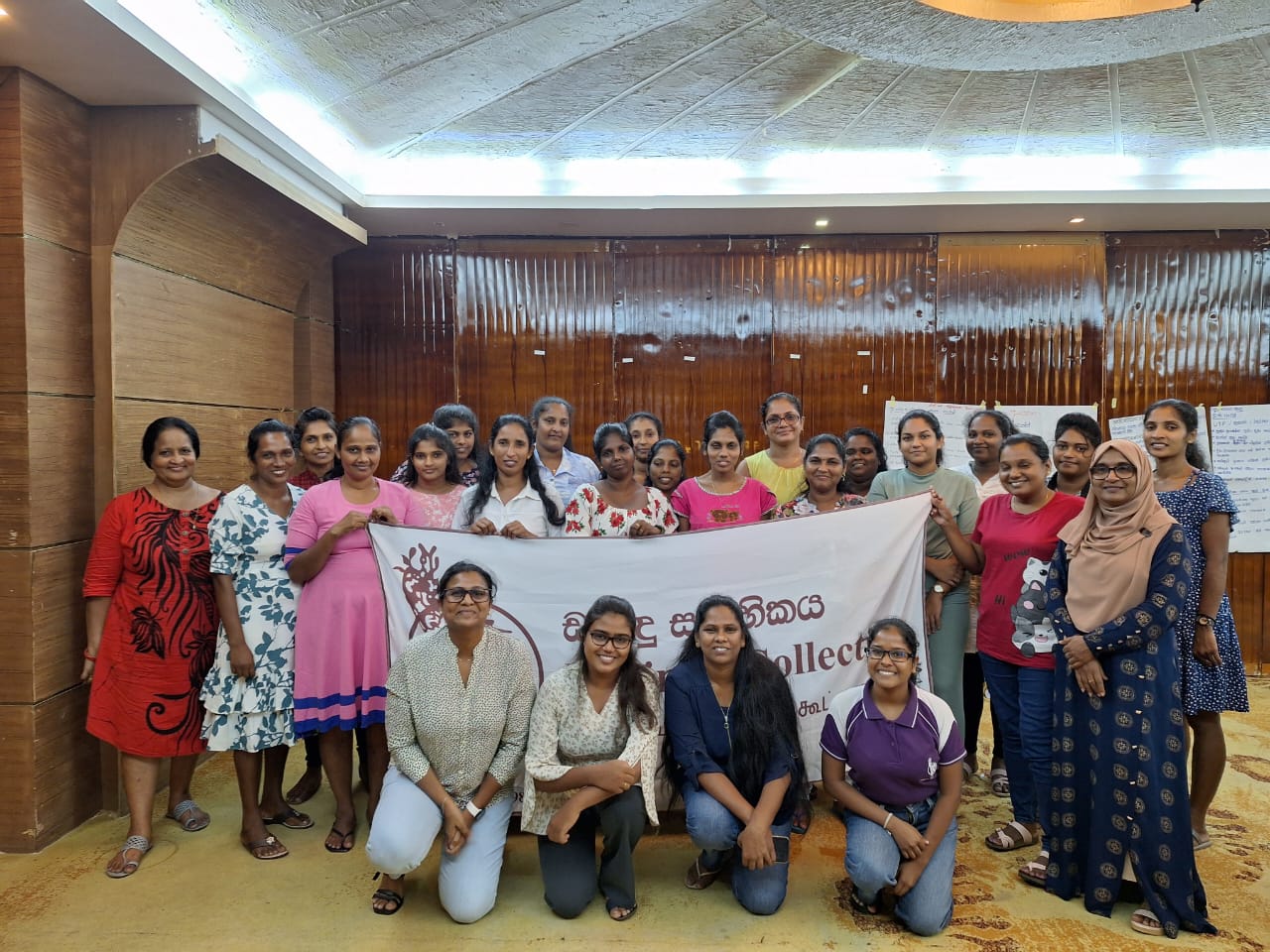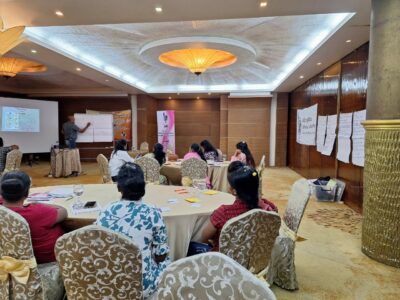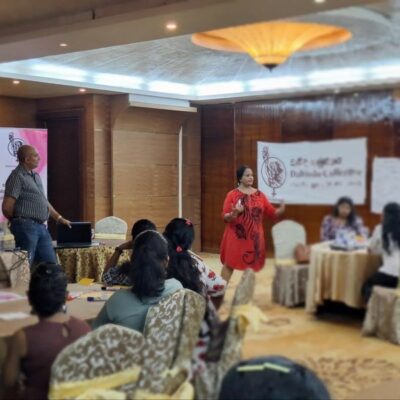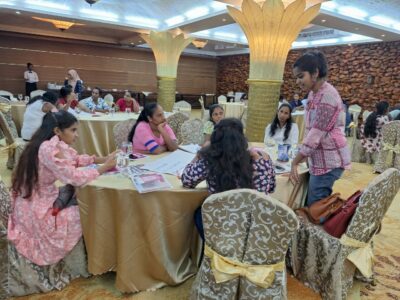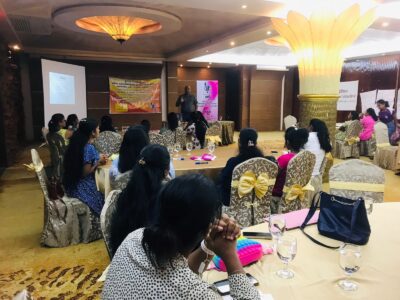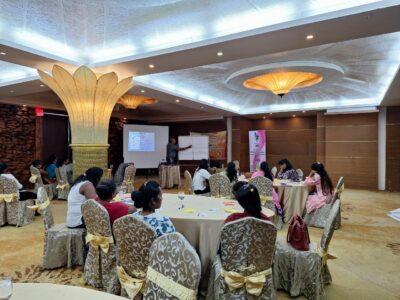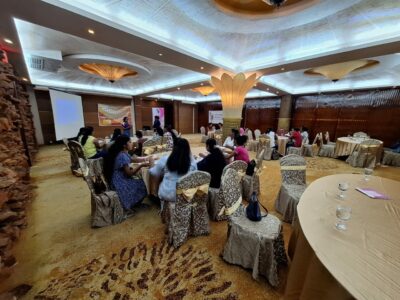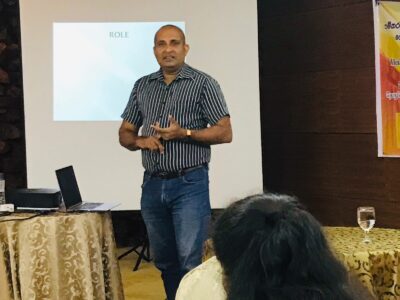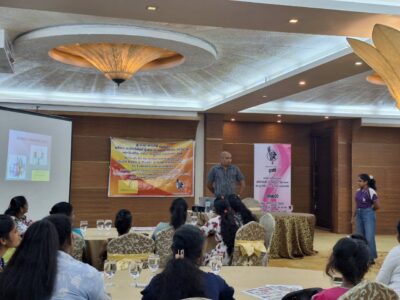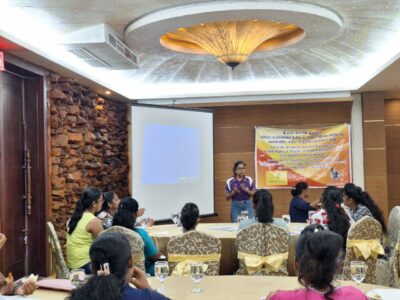Dabindu Collective successfully concluded the first of a series of SRHR teach-outs for workers in Katunayake FTZ on Sunday the 12th of May 2024, in collaboration with Dr S.R.S.C. Silva from the Seeduwa Medical Health Office (MOH).
The purpose of this session was to form relationships between public healthcare and women/LGBTQ+ worker communities in the garment sector. A main issue that worker communities face is visiting MOHs and engaging with PHMs due to the mismatch between workers’ and MOHs’ work hours. The inadequate incomes and lack of OT work have pushed women to take manpower work, especially on Saturdays, reducing their time to engage with primary healthcare. Workers, thereby, have been made unaware of their entitled healthcare services. This is why we decided to create this space for worker communities on Sundays.
Women workers shared many issues, including manpower workers, regarding their health and safety in factories and boarding homes.
- Some only provide one sanitary napkin per worker for a month, that is only an emergency sanitary napkin as workers are asked to bring their own. Most factories charge or deduct from salaries for this one napkin.
- The majority of manpower workers experience severe SRHR violations. Some factories only provide napkins based on their EPF/ETF number, and because manpower workers do not receive EPF/ETF, they do not receive napkins. In some factories, manpower workers cannot use the washrooms, and they have to wait until they get to their boarding homes.
- There still are factories that only provide one time-bound washroom break per day.
- Workers have to walk a considerable distance to their lockers to retrieve their sanitary napkins, and this becomes difficult for those working in time-bound washroom breaks who will be penalized for being delayed in returning to their workstation.
- Lack of proper disposal bins for used sanitary napkins and lacking sickrooms or nurses in certain factories are occupational health and safety issues raised during the session. Some factories provide painkillers specifically for menstrual pain that mandatorily require a doctor’s prescription.
- There still are factories that only provide one time-bound washroom break per day.
- Workers have to walk a considerable distance to their lockers to retrieve their sanitary napkins, and this becomes difficult for those working in time-bound washroom breaks who will be penalized for being delayed in returning to their workstation.
- Lack of proper disposal bins for used sanitary napkins and lacking sickrooms or nurses in certain factories are occupational health and safety issues raised during the session. Some factories provide painkillers specifically for menstrual pain, that mandatory require a doctor’s prescription.
- There still are factories, where workers have to handle toxic substances, and do not provide PPE like gloves and masks.
- Pregnant workers are treated the same as any other workers, for example, they have to use washrooms with squatting pans even when they are 8 months pregnant.
- Workers have to endure issues in boarding houses including the lack of separate washing spaces for men and women, open washing spaces so there is no privacy and safety, and dilapidated and unmaintained washrooms and toilets.

